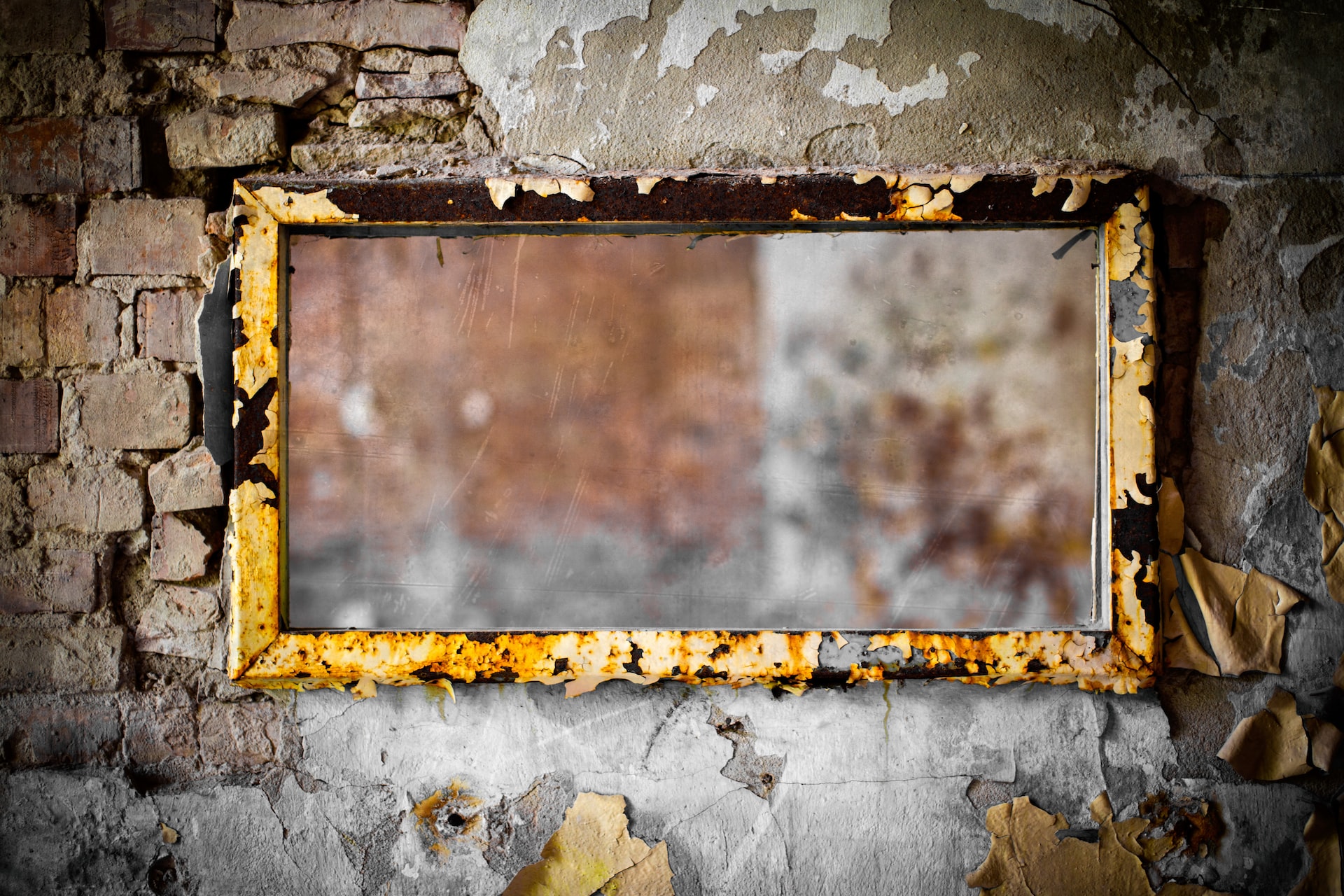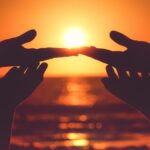by Stan Galloway

When I established Pier-Glass Poetry in May of 2021, Bluest Nude by Ama Codjoe had not been written or published. In one important aspect, though, they are born of the same impulse: viewing what is outside and looking inside at the same time. A pier-glass is traditionally a mirror between two windows, where one can simultaneously look at oneself and away from oneself. Codjoe concludes “On Seeing and Being Seen”: “My body is a lens / I can look through with my mind.” This collection looks at and through the body as a means of achieving self-actualization for the speaker. Taken as a whole, the book is a manifesto of selfhood, grappling through eddies of grief, shame, effort and, at times, arrival.
The mirror is specifically identified in ”Primordial Mirror,” where self-awareness “as a separate self, distinct from dirt and bone” amplifies the looking in. In doing so, the speaker examines “nakedness / as a feeling” rather than an objective state. And as if looking objectively from outside the self, the speaker claims, “The scentless girl / I was has a fragrance I recognize / in the mirror” (Resembling Flowers Resembling Weeds”). And, as a mirror multiplies the self, the speaker, in “Of Being in Motion,” recognizes, “I accumulate bodies – my own” in “versions of myself.” Here, the image of mirrors looking into each other perpetuates the self into infinity. The final section of the book is introduced with an epigraph from Mickalene Thomas answering the question of who is in the mirror?: “It’s always me. Sometimes it’s also my mother, my grandmother, or my great-grandmother. Sometimes it’s a person I’ve never seen before, sometimes it’s the person I want to be . . . or someone I haven’t become yet.” Near the end of the collection, the speaker announces, “Here I am, holding one more / mirror” (“Slow Drag with Branches of Pine). Codjoe examines the multiplicity of selves throughout the collection, with the recurring “I” as any one of those incarnations.
In looking out, the speaker concludes, “I perceived my likeness in everything,” finding the self in such objects as leaves, flies, and clouds. Part of the looking out in Bluest Nude is also realized in conversation with history. Like many thoughtful poems, Codjoe’s integrate the thoughts of other writers, some well known, such as Elizabeth Bishop’s “In the Waiting Room,” and some less well known, such as Ossie Davis’s eulogy of Malcolm X. But Codjoe does not make this a closed conversation among writers. Painters, photographers, and social activists are integral as well. Codjoe’s work encourages an educated citizenry. In her heaven (“Heaven as Olympic Spa”), Gwendolyn Brooks and Wanda Coleman welcome the speaker to herself in an afterlife of affirmation, complete with literary comfort.
But the human experience does not begin in heaven. This world presents many obstacles to self-actualization, including shame. This learned/innate condition is identified as “the shh in me” (“She Said”). Bluest Nude tackles the issue of body shame from multiple angles. The shame of one’s body is challenged in the third poem of the collection, “Two Girls Bathing.” Here the difference between brothers and sisters is collapsed into a single observation: “Tucked inside her is what hangs // from my brothers like pockets turned / inside out.” The poem ends with the speaker unsure of “when and from whom / I learned to be ashamed.” But the breasts that later grow shift from shame to assertion and solidarity in “Burying Seeds.” Here the speaker identifies the naked breast with mourning, rather than sexual identity: “The widow’s / breasts and mine hang like four weeping eyes, / without titillation, fertility, or innocence.” What housed ill-defined shame – one’s nakedness – becomes sometimes “unremarkable” (“Heaven as Olympic Spa”) and more significantly, the root of identity and selfhood. Even in its absence (“Why I Left the Garden”), the breast is a source of identity, and finds resonance in the sky “changed like a breast, engorged, staining the front / of a white silk blouse” (“After the ________, time turned like a mood ring”). Ambivalently, that same nakedness can be objectified “like a uniform” (“Aubade”). The natural body is the both artist and canvas, morphing from one to the other as needed.
The ultimate symbiosis of the internal and the external is childbirth. “Burying Seeds” invokes Betty Shabazz, who “covered her daughters in the rooms / her body built.” Growing from the self-identification in Nature that “Primordial Mirror” introduced, “Burying Seeds” provides a principle of human existence: “The body longs for its double.” And, in finding itself both inside and outside the body, roles intertwine to the point that the speaker “[becomes] grandmother to [her]self” (“After the _______, I mothered my mother”). In “Labor,” the speaker contemplates what it is to be a mother, moving from “Black women heaving Bugaboo / strollers” on Broadway to the ambivalence of maternal desire – wanting children but also recognizing she has not earned them, acknowledging, finally, “with some relief, I have to let them go.” Moments with the children of others will suffice. Yet, she says, “I’ll remember / the pain of childbirth” (After a Year of Forgetting”). In these poems, the speaker is the lover giving her body, the child being born, the mother giving birth, the sibling looking on, the bystander wondering why, often several of these simultaneously.
Sometimes, “it is not about the body” (“A Family Woven Like Night through Trees”), Codjoe writes, but much of Bluest Nude is. The body is central as both subject and object. It is the cause, and it bears the effect. It is both image and lens. Codjoe captures what Ada Limon names “a necessary truth” in exploring “the mystery and legacy of the body.” These poems – from the opening epigraph to the concluding Acknowledgments (am I the only one who reads these?) – splash the sensual with the existential, or the other way around, and like the pier-glass, look out and look in at the same time. This is a book to be read and reread for its always-fresh imagery and poignant insight. You may just have a greater appreciation for your own body when you’re done.
Stan Galloway writes from the hills of West Virginia. He is the founder and host of Pier-Glass Poetry. He is the author/editor of 9 collections, including Endlessly Rocking (Unbound Content, 2019).



Add your first comment to this post